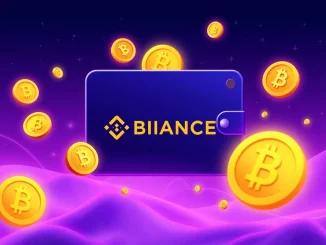
Big news in the world of decentralized technology and enterprise adoption! A major European telecommunications giant is stepping further into the blockchain space. The decentralized blind computing platform, Nillion, recently announced a significant development: Deutsche Telekom MMS, a subsidiary of Deutsche Telekom, is now operating a node operator on Nillion’s Privacy-Enhancing Technologies Network, known as PetNet.
Why is Deutsche Telekom Joining Nillion’s PetNet a Big Deal?
When a company the size of Deutsche Telekom gets involved in emerging decentralized networks, it signals growing confidence and potential for wider adoption. Here’s why this partnership is noteworthy:
- Validation: Deutsche Telekom’s participation lends credibility to Nillion’s technology and vision for privacy-enhancing computation.
- Network Strength: Adding a large, reputable entity like Deutsche Telekom MMS as a node operator enhances the decentralization, reliability, and geographic distribution of the PetNet.
- Enterprise Interest: This move highlights increasing enterprise interest in leveraging advanced privacy technologies and blockchain-related infrastructure.
PetNet is Nillion’s network specifically designed for testing and demonstrating its decentralized blind computing capabilities. This technology allows computations to be performed on data without revealing the underlying data itself, a crucial aspect for privacy-sensitive applications.
Understanding Nillion and PetNet
At its core, Nillion aims to solve a critical challenge in data utilization: how to process and gain insights from sensitive data without compromising privacy. Traditional methods often require data to be decrypted, making it vulnerable. Nillion’s approach, decentralized blind computing, leverages advanced cryptographic techniques to enable secure computations on encrypted or ‘blinded’ data.
The PetNet serves as a crucial testing ground for this technology. Node operators on the PetNet play a vital role in maintaining the network’s integrity and performing the necessary computations in a decentralized manner. By joining as a node operator, Deutsche Telekom MMS is directly participating in the infrastructure that powers these privacy-preserving computations.
What Does a Node Operator Do?
In decentralized networks like Nillion’s PetNet, nodes are the fundamental building blocks. A node operator runs the software that connects to the network, validates transactions (or in Nillion’s case, participates in computations), and helps secure the network. For Deutsche Telekom MMS, this means:
- Running the necessary hardware and software to operate a PetNet node.
- Contributing computational resources to the network.
- Supporting the decentralized nature and resilience of the PetNet.
Their involvement brings operational expertise and infrastructure reliability, which are invaluable for a growing decentralized network aiming for enterprise-grade use cases.
The Broader Implications for Blockchain and Privacy Tech
This partnership is more than just one company joining a network; it reflects a broader trend. As businesses and individuals become more aware of data privacy concerns, the demand for technologies like Nillion’s is set to grow. Deutsche Telekom’s move could encourage other large enterprises to explore how decentralized privacy-enhancing technologies can be integrated into their operations, from secure data analysis to confidential cross-organizational collaborations.
The convergence of established corporate entities like Deutsche Telekom with innovative blockchain and privacy platforms like Nillion and its PetNet signifies a maturing ecosystem where cutting-edge technology is finding real-world applications beyond traditional cryptocurrency use cases.
Conclusion
Deutsche Telekom MMS becoming a node operator on Nillion‘s PetNet is a significant step for both entities and the wider decentralized privacy tech space. It validates Nillion’s technology, strengthens its network infrastructure, and demonstrates a tangible commitment from a major corporation towards exploring and utilizing privacy-enhancing decentralized solutions. This partnership is a positive indicator for the future adoption of technologies that prioritize both computation and confidentiality.



